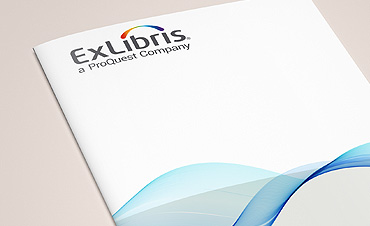January 11, 2010
Major new functionality and a preservation planning module further enhance the internationally acclaimed digital preservation system
Jerusalem, Israel — January 11, 2010. Ex Libris® Group is pleased to announce the beta release of version 2.0 of the Ex Libris Rosetta digital preservation system. Currently undergoing beta testing at the National Library of New Zealand, version 2.0 will be rolled out to all Rosetta customers in spring 2010.
The Ex Libris Rosetta digital preservation system enables institutions to manage, preserve, and provide access to documents for perpetuity—institutional documents, research output in digital formats, digital images, Web sites, and other digitally born and digitized materials. Rosetta supports the acquisition, validation, ingest, storage, preservation, and dissemination of digital objects from many sources and formats and keeps this information secure while allowing institutions to implement multiple digital preservation policies and strategies.
Version 2.0 introduces a first of its kind preservation planning module. Complying with the Open Archival Information System (OAIS) standard, the module enables institutions to manage and mitigate risks related to digital formats and to perform a variety of preservation actions. The preservation planning module consists of risk mitigation and a format library. Rosetta manages the preservation planning process from risk to action—allowing the evaluation and comparison of different preservation options. In addition, Rosetta offers a library of digital formats based on the PRONOM global format archive, which enables libraries to add and manage additional formats as they become relevant and to register different risks for new formats.
With version 2.0, Rosetta institutions can share information about risks and formats on a network level.
Other highlights of the new product version include the following:
- Object deletion: In accordance with distinct digital preservation conventions, the deletion process in version 2.0 requires further approval before an item can be deleted. The reason given for the deletion is stored permanently.
- Restoring objects from permanent storage: To prevent objects from being lost or destroyed, Rosetta stores information on disk as part of the permanent repository. Version 2.0 enables objects from the permanent repository to be restored at any time.
- Access rights exceptions: Rosetta enables a library to define access rights based on the institution’s unique policies. With version 2.0, libraries will be able to create exemptions and temporary changes to the access policy, such as short-term access for a specialist researcher.
”We are excited about the release of version 2.0 of Rosetta,” Dr. Klaus Ceynowa, deputy director general of the Bavarian State Library, commented. ”In particular, our staff members are looking forward to working with the preservation planning module, which will manage our preservation process from beginning to end.”
“Rosetta is the core software component in the National Library of New Zealand’s efforts to build a sustainable digital preservation program,” remarked Steve Knight, program director of preservation research and consultancy. “We have been successfully running the first version of Rosetta for over a year now and are very pleased to see the rich functionality supporting format libraries, risk management, and preservation planning and action coming on stream.”
Yaniv Levi, Rosetta product manager at Ex Libris, added: ”Version 2.0 is an important landmark for Rosetta and Ex Libris. As with all new releases, we worked closely with Rosetta customers to identify the essential features for this product version. We look forward to continuing our collaboration with customers to further extend and enhance Rosetta.”
About Ex Libris
Ex Libris is a leading provider of automation solutions for academic, national, and research libraries. Offering the only comprehensive product suite for electronic, digital, and print materials, Ex Libris provides efficient, user-friendly products that serve the needs of libraries today and will facilitate their transition into the future. Ex Libris maintains an impressive customer base consisting of thousands of sites in more than 75 countries on six continents.
Dedicated to developing creative solutions in close collaboration with customers, Ex Libris enables libraries to maximize productivity and efficiency and, at the same time, greatly enhance the user experience. By empowering users to discover and obtain the information they need, libraries ensure their position as the bridge to knowledge.
For additional information on Ex Libris Group, see our Web site, visit our Initiatives and Commentary blogs, and follow our Twitter page.




